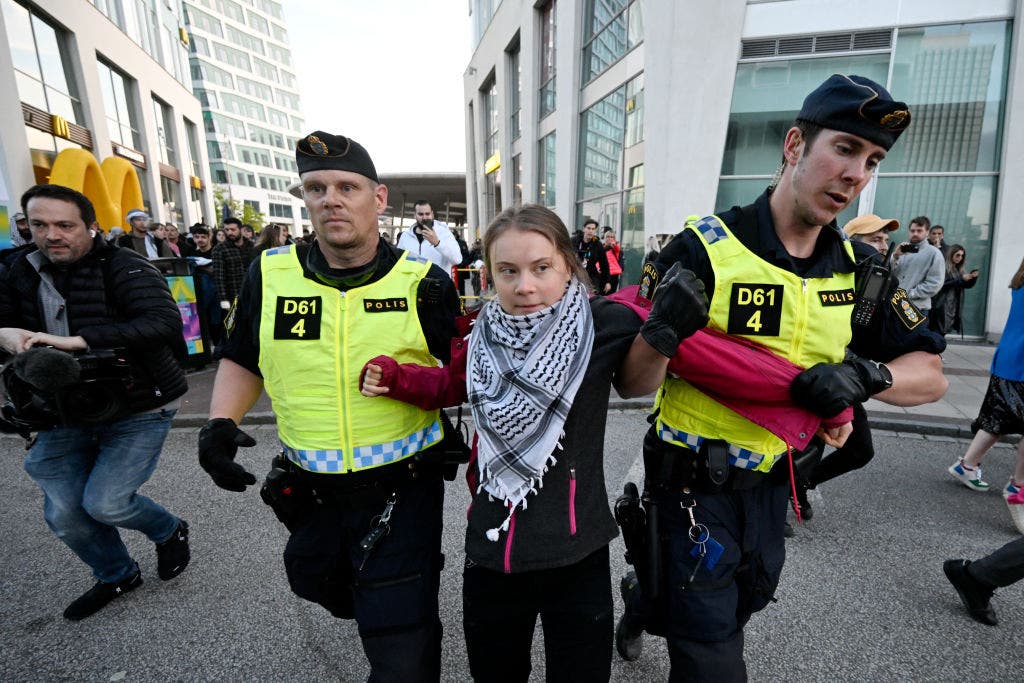Activist Greta Thunberg was arrested at Copenhagen University along with five other individuals for protesting the institution’s connections to Israel. The protest was organized by the Students Against the Occupation group, known for its anti-Israel activism. Thunberg, known for her climate activism, has joined several anti-Israel protests across Europe, particularly in response to Israel’s actions in Gaza. The group demanded that the university end all partnerships and collaborations with Israeli institutions, including the Erasmus student exchange program and the Niels Bohr Institute, which is named after a physicist of Jewish ancestry.
Thunberg took to Instagram to share updates on the protest, stating that police had violently entered the building with assault rifles to evict protesters. She reported that students were being arrested and taken to the police station at that moment. Critics accused Thunberg of hypocrisy, claiming that one of the university’s programs with Israeli partners focused on solving climate change. However, such a program could not be confirmed by Fox News Digital. The Niels Bohr Institute, where the protest took place, does research on the physics of ice and climate, seeking to understand past, present, and future climatic changes.
Copenhagen police reported that Thunberg was part of a group of around 20 protesters who demonstrated inside the university administration building. In addition to Thunberg, five other individuals were arrested. However, Thunberg has since been released by the police. The protest sparked controversy due to Thunberg’s involvement, with some claiming that her climate activism did not align with her participation in anti-Israel demonstrations. The debate highlighted the complexities of activism and the diversity of issues that individuals may choose to advocate for based on their beliefs and values.
The Students Against the Occupation group’s protest against Copenhagen University’s connections to Israel sheds light on the ongoing tensions in the Middle East and the global solidarity movements that these conflicts inspire. The group’s call to end partnerships with Israeli institutions reflects a broader campaign for boycotts, divestments, and sanctions against Israel. Thunberg’s involvement in this protest showcases the intersectionality of activism and the interconnectedness of various social justice causes.
Thunberg’s arrest at the Copenhagen University protest added another chapter to her activist journey, which has primarily focused on climate change activism. By branching out to support other causes, such as the anti-Israel protest, Thunberg expands her advocacy beyond environmental issues. This demonstrates a holistic approach to activism that recognizes the interrelated nature of social, political, and environmental challenges. Thunberg’s experience at the protest highlights the risks and sacrifices that activists often face in their efforts to bring about change.
The incident at Copenhagen University reinforces the importance of dialogue, debate, and peaceful protest in addressing complex and contentious issues such as the Israeli-Palestinian conflict. While Thunberg’s participation in the protest may have sparked controversy, it also drew attention to the connections between climate change and geopolitical conflicts. By engaging in activism on multiple fronts, Thunberg and other activists demonstrate a commitment to creating a more just and sustainable world. The arrest of Thunberg and her fellow protesters serves as a reminder of the challenges and obstacles that activists confront in their pursuit of social change.


